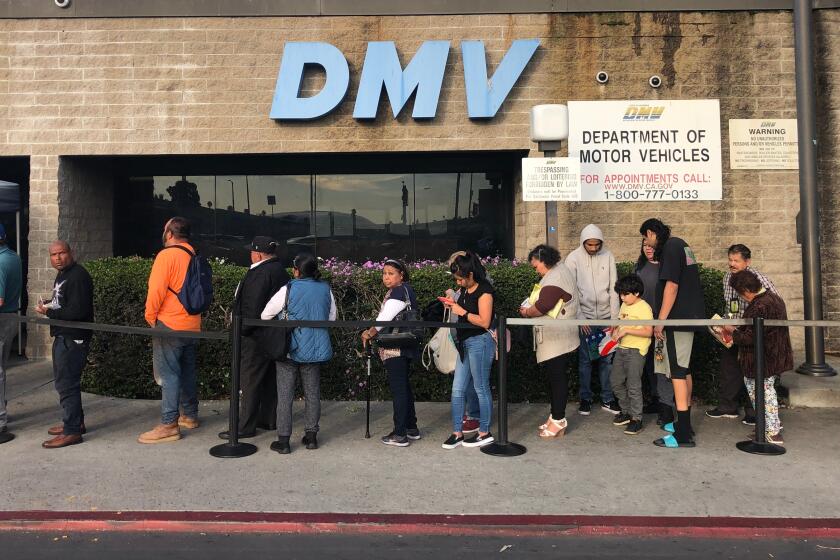Elliot Rodger may have used knife, hammer, machete in killings, attorney says
- Share via
San Jose — The parents of Elliot Rodger’s first three victims -- UC Santa Barbara students George Chen, David Wang and James Hong -- are struggling to deal with the violence inflicted on their sons nearly a month after the rampage in Isla Vista.
Exactly what happened remains unclear. Santa Barbara County Sheriff Bill Brown called it a “pretty horrific crime scene,” saying the three men had been “stabbed repeatedly with sharp objects.” Police made the discovery after Rodger embarked on a deadly rampage on the streets of Isla Vista, killing three other UCSB students and wounding 13 other people before apparently taking his own life.
An attorney representing the three families, Todd Becker, said they believed the killings occurred sometime that day and that a knife, a hammer and a machete were used.
In depth: The story of Elliot Rodger’s first three victims
There are many questions, including how the slightly built Rodger could have overpowered three other people and when they were actually killed. A sheriff’s spokeswoman said investigators were looking into whether the victims had been drugged or poisoned.
“I don’t want to know,” David Wang’s mother, Jinshuang Liu, said at her home in Fremont, her eyes brimming with tears. “I remember my son as really handsome, good heart, kind to everybody. That’s what I remember.”
The first victims, who became acquainted through computer engineering classes, shared a passion for math and science, and dreamed of creating a start-up together after graduation. They also shared a culture and the values that came with it -- Chen and Wang were the sons of Chinese immigrants who came to the U.S. from Canada; Hong emigrated from Taiwan.
They avoided their university’s often wild party scene, family and friends said, instead preferring computer games, programming marathons or playing basketball.
When their second year rolled around, Wang and Hong moved into a small apartment in Isla Vista, the beachside community near UCSB. Chen’s parents wanted him to live on campus for another year, so a third roommate was assigned to Apartment 7 in the charcoal-gray complex on Seville Road. His name was Elliot Rodger.
From the beginning something didn’t click. When Wang’s mother helped him move in, she recalled, she told the three roommates to look after one another. Rodger brushed her off, she said.
Wang told his mother Rodger was difficult to get along with, that he spent a lot of time out of the apartment or alone in his room.
Rodger didn’t care for his roommates, writing about the noise they made and calling them names. “These are the biggest nerds I had ever seen,” he wrote in a rambling journal.
The mood in the apartment grew more tense over time. In January, Rodger became enraged over a meal Hong was cooking and snatched away a small bowl. Annoyed, Hong grabbed the closest thing that belonged to Rodger — three candles — and expected to make a trade. Instead, Rodger called the police and made a citizen’s arrest.
When a sheriff’s deputy arrived, Hong insisted he had proof Rodger had been moving his belongings around the apartment. Rodger denied the claims, the deputy wrote in a report. When Hong refused to give the candles back, the deputy handcuffed him and booked him on suspicion of petty theft.
Hong was frustrated, but didn’t want to aggravate his roommate further. By May, he and Wang made plans to move out, signing a lease with Chen for a new apartment. They kept their distance from Rodger, who spent more and more time outside the apartment, driving around Santa Barbara in his BMW.
This was life in Apartment 7 until May 23.
That night, police discovered the bodies of Chen, Wang and Hong inside.
For family and friends, the last month has been filled with mourning and trying to understand how the violence could have happened. Why would someone murder these young men?
Rodger wrote extensively about people he hated for rejecting him: Popular men. Beautiful women. People who partied.
Times staff writers Richard Winton and Adolfo Flores contributed to this report.
More to Read
Sign up for Essential California
The most important California stories and recommendations in your inbox every morning.
You may occasionally receive promotional content from the Los Angeles Times.











